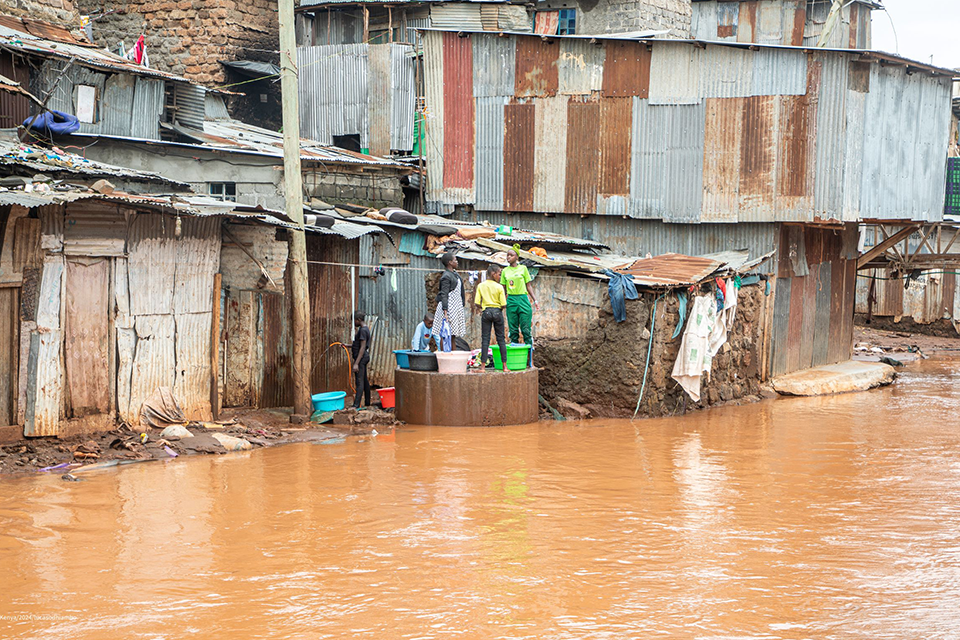At COP29, UK Minister for Development Anneliese Dodds announced a £30 million (Ksh4.8 billion) uplift to the Weather and Climate Information Services (WISER) Africa programme, which includes up to Ksh660 million (£4 million) of new funding for WISER Kenya. This will go towards adaptation to climate hazards such as droughts, floods and storms, working with communities – particularly women and girls – to understand and respond to their needs.
In partnership with Kenya Meteorological Department, the Intergovernmental Authority on Development (IGAD) Climate Predictions and Applications Centre (ICPAC) and Kenya Red Cross, the WISER programme will enhance early warning and early action before disaster strikes, reducing humanitarian need and supporting drought-affected communities. In 2023, Kenya experienced the worst drought in 40 years, and this year, it experienced the most devastating floods which displaced more than 15,000 households. Enhancing weather and climate forecasting is an essential part of enabling households, government and humanitarian actors to take anticipatory action, reducing the risk to life and livelihoods due to extreme weather events.
British High Commissioner to Kenya Neil Wigan, said
Weather and climate services help us all to prepare better. WISER has supported farmers and communities across Kenya – from Lake Victoria to Kibera – to anticipate and reduce the impact of severe weather.
Through this funding uplift, we look forward to working with Kenya Meteorological Department and other partners to enhance Early Warning Systems and support communities to prepare for climate shocks such as droughts and floods.
Senior Climate Scientist at ICPAC Philip Omondi Amingo, said
This funding will greatly enhance the capacity of leading early warning and humanitarian institutions in Kenya to develop triggers and early warnings ahead of predicted weather and climate hazards, reducing the impacts on communities before they fully unfold.
Previous phases of WISER delivered early warning services such as improved weather forecasts for Lake Victoria, which led to a 30% decrease in severe weather-related deaths and generated $44 million (Ksh5.6 billion) in economic benefits for Lake Victoria fishing communities.
Through the DARAJA project, WISER is supporting inclusive urban initiatives across East Africa through providing early warnings of extreme weather, particularly to marginalised communities based in informal settlements. For example, the project has previously worked with local communities such as Kibera to co-design weather information using radio and SMS. This can help people to take action to protect themselves and their property.
Notes to Editors
-
DARAJA, which means ‘bridge’ in Swahili, provides regular, reliable weather information and response actions in accessible and easy-to-understand formats for residents of informal settlements.
-
Since its launch in September 2018, DARAJA has provided almost 1 million people in Kenya and Tanzania with better weather information. The service has led to well evidenced reductions in climate loss and damage to communities and generated a significant increase in household repairs made in response to weather forecasts, with a 300% increase in Nairobi and a 122% increase in Dar es Salaam. This initiative is now being expanded to Addis Ababa and Kampala, and this new funding for WISER Kenya will support scoping for DARAJA activities in Mombasa.
-
This new funding for WISER Kenya will also support co-design of services with communities in Garissa and Tana River, ensuring they have timely and tailored weather climate information to enhance preparedness for climate shocks and stresses such as drought.
-
Earlier this month, IGAD launched the WISER Kenya project in Garissa County. The project aims to enhance Early Warning for All (EW4ALL) initiative for climate resilience in the arid and semi-arid region by delivering timely and tailored climate information to enhance preparedness for extreme weather events.
-
Speaking during the launch, Garissa Deputy Governor Abdi Dagane underscored the need for accurate climate information systems adding that Garissa’s vulnerable communities require timely and practical data to mitigate climate risks.






